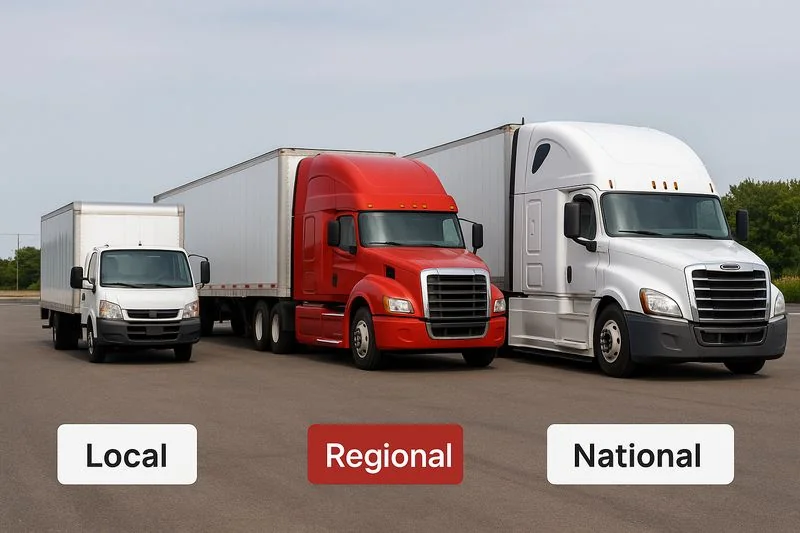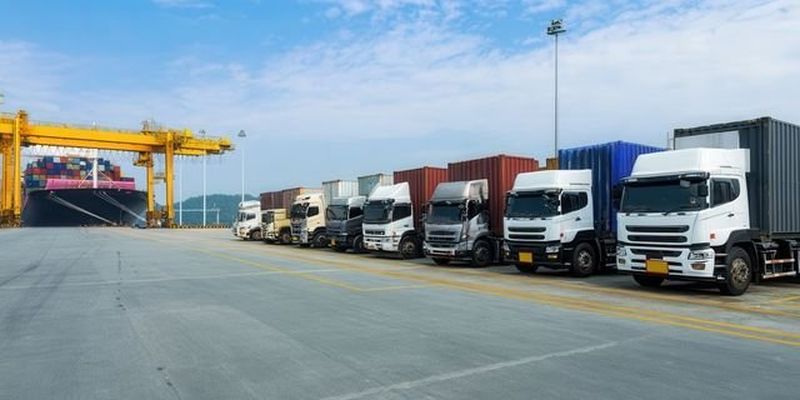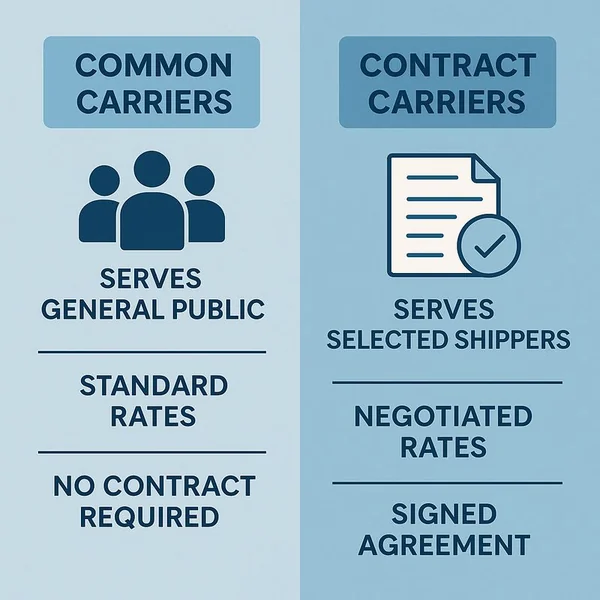Table of Content:
- What Is a Freight Carrier?
- What Are Common and Contract Carriers?
- What Are Local, Regional, and National Carriers?
- What Are Private and For-Hire Carriers?
- How Do I Choose the Right Freight Carrier?
- How YK Freight Can Help You Save on Shipping
What Is a Freight Carrier?
A freight carrier is a person or company that moves goods from one location to another. This can include anything from a single vehicle transporting a car across town to a large company moving hundreds of shipments across the country. Some freight carriers don’t just move cargo—they may also act as operators or freight forwarders, coordinating routes, handling paperwork, and ensuring your items reach their destination safely.
For people looking to save on shipping, understanding what a freight carrier does is essential. Choosing the right carrier can save both time and money, whether you’re transporting a used car from an online auction, shipping auto parts for a project, or moving personal cargo. By knowing the carrier’s role and capabilities, you can avoid unnecessary fees, delays, or extra handling steps.
What Are Common and Contract Carriers?
Freight carriers in logistics can be divided into common carriers and contract carriers, and understanding the difference is key for anyone shipping goods on a budget.
Common carriers serve the general public and handle a wide range of shipments. They set standard rates for their services and transport goods without requiring a long-term agreement. This makes them a convenient choice for occasional shipments, like sending a single car or a few auto parts across the state.
Contract carriers, on the other hand, work only with selected shippers under a signed contract. These carriers negotiate rates directly with the shipper, which can lead to better prices and more customized services. They are ideal for businesses or individuals who regularly ship large volumes of freight, such as multiple vehicles or frequent auto parts shipments.
Example: If you need to ship a used car occasionally, a common carrier is a simple and straightforward choice. But if you regularly ship several vehicles, a contract carrier could offer a lower rate and more reliable service, helping you save money in the long run.
What Are Local, Regional, and National Carriers?
Freight carriers can also be categorized by the area they serve: local, regional, or national. Each type has different capabilities, which can affect cost, speed, and flexibility—important factors for budget-conscious shippers.
Local carriers are small companies with limited service areas, typically operating within an 80–100 mile radius. They usually have smaller fleets and focus on personalized, flexible service. Local carriers are perfect for short-distance shipments, like moving a car or auto parts within your city or state.
Regional carriers serve a broader area and generally have larger fleets. They operate across multiple states or a defined region, offering more resources than local carriers while still maintaining some flexibility. Regional carriers are a good choice when shipping across neighboring states or larger sections of the country.
National carriers are the largest players in the market, often competing with giants like UPS and FedEx. They have extensive fleets, advanced technology, and nationwide coverage. National carriers are best suited for cross-country shipments or large-volume freight that requires a consistent, reliable service.

Example: A local carrier might be perfect for shipping your car within your state, while a national carrier is the better choice for sending a vehicle across the country. Choosing the right level of service can help you save money and avoid unnecessary delays.
What Are Private and For-Hire Carriers?
Freight carriers can also be classified as private or for-hire, depending on who owns the vehicles and who pays for the transportation.
Private carriers are owned and operated by the shipper. They transport their own goods using their own trucks or equipment and do not charge additional fees for moving freight. This type of carrier is common for businesses that regularly ship their own products, like an auto dealership moving vehicles between locations.
For-hire carriers, on the other hand, are available to the public. They transport freight for other people or companies and charge for their services. These carriers can handle everything from a single vehicle shipment to large volumes of cargo, making them a flexible solution for individuals or businesses that don’t own their own trucks.
Example: If you own a small fleet of trucks to transport cars for your auto business, you are a private carrier. But if you hire YK Freight to transport a car, that’s using a for-hire carrier. For budget-conscious shippers, using a for-hire carrier like YK Freight can save money because you avoid the costs of owning, maintaining, and operating your own fleet.
How Do I Choose the Right Freight Carrier?
Choosing the right freight carrier is key to saving time, avoiding extra costs, and ensuring your cargo arrives safely. Several factors should guide your decision:
- Reliability – Look for carriers with a proven track record of delivering on time and handling shipments carefully.
- Compliance – Ensure the carrier is properly licensed and meets all industry regulations.
- Experience – Experienced carriers understand how to handle different types of cargo, from vehicles to oversized auto parts.
- Equipment – Check that the carrier has the right trucks, trailers, or handling equipment for your shipment.
- Cost – Compare rates, but don’t sacrifice safety or reliability for the lowest price.
Large carriers often provide more capacity and advanced technology, making them suitable for high-volume or long-distance shipments. Smaller carriers may offer flexibility, personalized service, and attention to detail, which can be ideal for smaller shipments or local deliveries.
For budget-conscious shippers, it helps to ask three simple questions before hiring a carrier:
- Does the carrier provide the right equipment for my shipment?
- Is the carrier licensed and compliant with regulations?
- Does the cost fit my budget?
Example: When shipping an auto from an online auction, checking these points can help you avoid hidden fees, delays, or damage. Taking the time to choose the right carrier ensures your cargo arrives safely and your shipping experience is smooth.
How YK Freight Can Help You Save on Shipping
Navigating the world of freight carriers can be confusing, especially if you’re looking to save money on shipping a car or auto parts. That’s where YK Freight comes in. With years of experience working with local, regional, national, private, and for-hire carriers, YK Freight knows how to match your shipment with the right carrier for your needs and budget.
Working with YK Freight offers several benefits for budget-conscious shippers:
- Cost-efficient options – They help you find carriers and shipping methods that fit your budget without compromising safety or reliability.
- Direct delivery – Your cargo can go straight from the port to your garage, workshop, or project site, reducing handling steps and extra fees.
- Flexible solutions – Whether it’s a single car, multiple vehicles, or unusual cargo like auto parts or oversized machinery, YK Freight coordinates the shipment so it arrives safely and on time.
Further Reading
What is a 3PL Carrier?
What is an Intermodal Carrier?
What is a Broker in Transportation?
What is Drayage Trucking?







ASK YOUR QUESTIONS